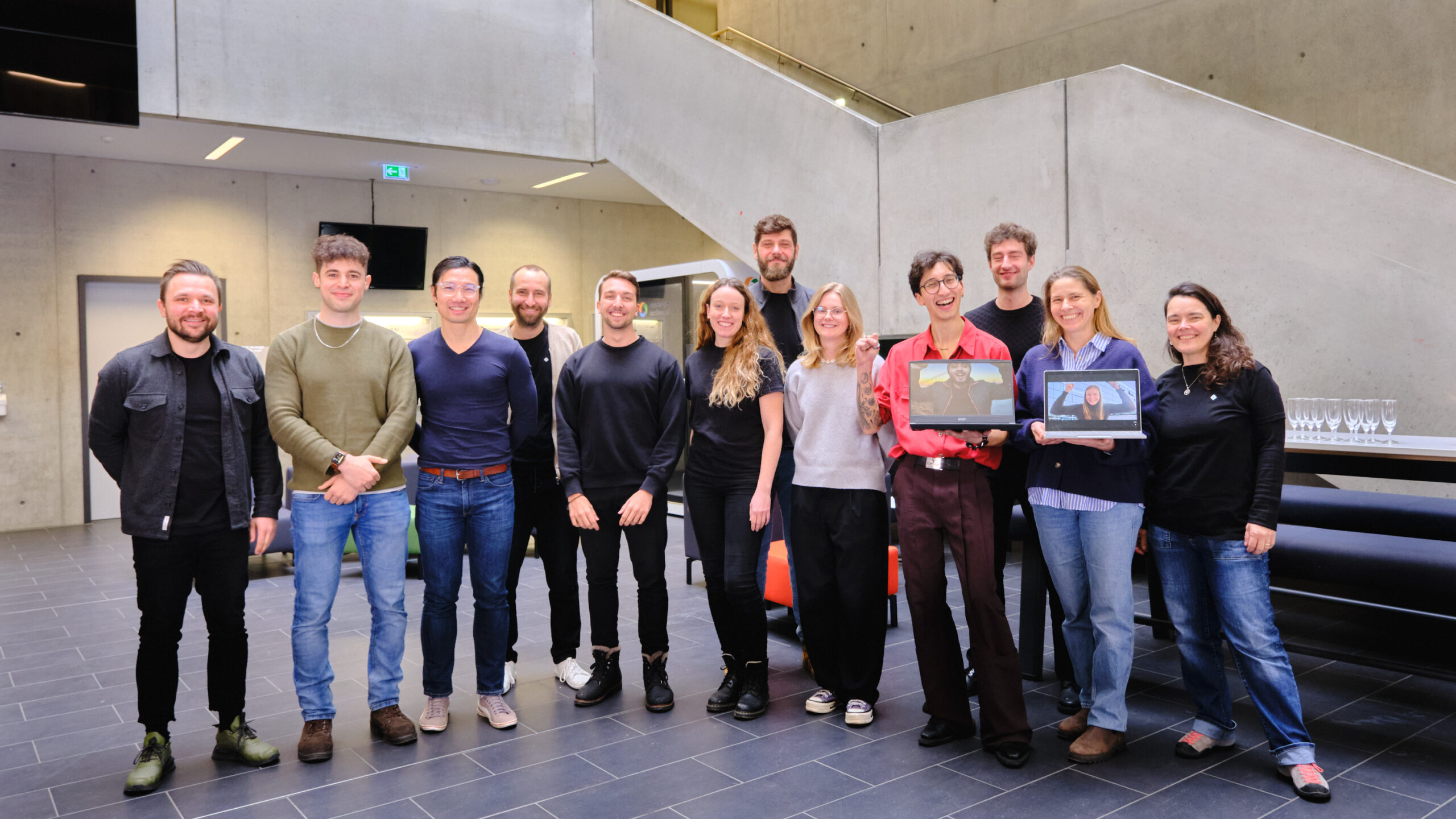THA researchers and cooperation partner Lumium GmbH receive funding approval from the Free State of Bavaria for the research project DaTeam-VR – Datadriven Team Insights in Virtual Reality
Augsburg/Germany, February 6, 2025: The interdisciplinary team of researchers at Augsburg University of Applied Sciences (THA) under the scientific leadership of Prof. Dr Simone Kubowitsch, Professor of Business Psychology at THA Business School, and Prof. Dr Jianing Zhang, Professor of Applied Data Science at THA and Lead Scientist at the Technology Transfer Centre for Data Science and Autonomous Systems in Landsberg am Lech, Germany, has been awarded a prize. Jianing Zhang, Professor of Applied Data Science at the THA and Lead Scientist at the Technology Transfer Centre for Data Science and Autonomous Systems in Landsberg am Lech, together with the team of developers and providers of VR environments led by Lukas Karwan, CEO and Head of Content at Lumium GmbH, has been awarded funding of around EUR 610,000 for the research project ‘DaTeam-VR – Datadriven Team Insights in Virtual Reality’. 000 euros as part of the ‘Digitalisation’ funding line of the Bavarian Joint Research Programme (BayVFP) of the Free State of Bavaria with a total funding volume of 1.1 million euros. The project will run for three years and ends in 2027.
The planned research project aims to use artificial intelligence (AI) algorithms to develop a methodology for recording and analysing team processes and team stress.
The research question
At the heart of the project is a real-time analysis of virtual reality (VR) tracking data (eye and other movement data), psychophysiological data and speech. This innovative methodology is being developed in an interdisciplinary team of participants from data science, psychology as well as developers and providers of VR environments. The results of the analyses are used to give teams tips on how to improve their team performance. The resulting tool can also be used in personnel and organisational development to effectively and efficiently support corporate transformations.
What the researchers say
Prof. Dr. Simone Kubowitsch, Professor of Business Psychology at THA Business School: ‘The development of a data-driven tool to diagnose team processes in a virtual reality environment represents a novel approach that has the potential to significantly improve the way we understand and optimise team dynamics. By integrating data science, VR technology and psychology, this innovation allows us to analyse behaviours and patterns of collaboration with a precision and depth that has not been possible before.’
Prof. Dr Jianing Zhang, Professor of Applied Data Science at Augsburg University of Applied Sciences and Lead Scientist at the Technology Transfer Centre for Data Science and Autonomous Systems in Landsberg am Lech: ‘Advanced algorithms and machine learning can be used to identify behavioural patterns that represent certain psychological states, preferences or performance capabilities. These insights can then be translated into customised recommendations for teams to specifically promote their collaboration, performance and well-being, as well as to make team development processes more efficient and effective.’
What the project partner says
Lukas Karwan, CEO and Head of Content at Lumium GmbH: ‘The tool has a wide range of applications. It can support the quick and effective integration of new team members and the formation of new teams. In addition, resilience training for teams strengthens their resilience to stressors and challenges, which is essential for maintaining high performance. Furthermore, team diagnostics for teams enables the identification of areas of action for managers to make targeted improvements in team leadership and dynamics. Recording the strain on teams is another important step in promoting sustainable workplaces and introducing preventative measures at an early stage. Finally, the tool can support the continuous, location-independent development of teams. This is particularly important in today’s working world with the increasing decentralisation of work structures and the associated remote and hybrid working.’
The DaTeam-VR research project also involves young scientists who are studying an issue in the DaTeam-VR project as part of their Master of Applied Research in Engineering Sciences (MAPR) or as doctoral students.
Further information:
(http://www.tha.de/TTZ-Landsberg/DaTeam-VR)
Projektseite DaTeam-VR
Image source
THA
The DaTeam-VR research project combines expertise from science and practice: Applied Data Science, Psychology and the development and application of VR environments.


